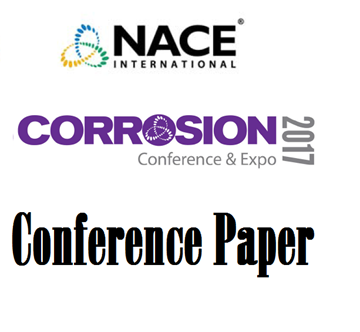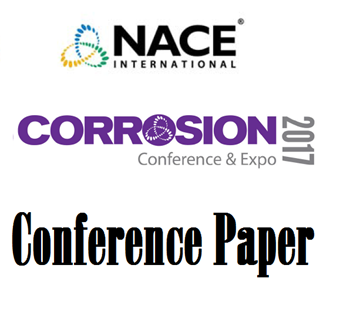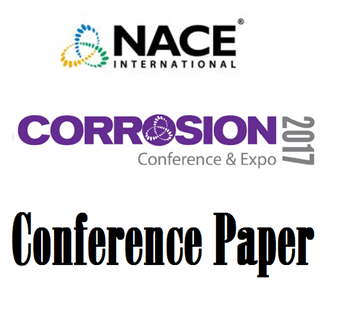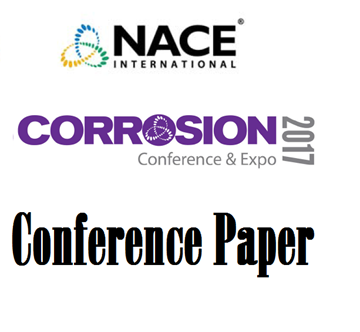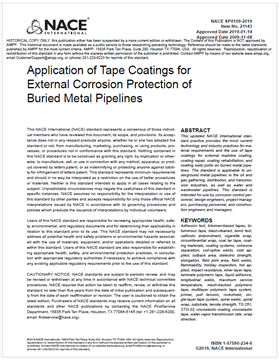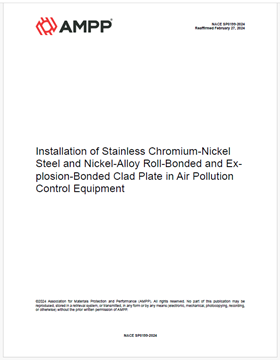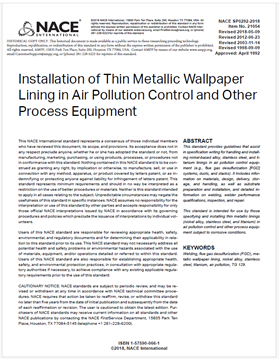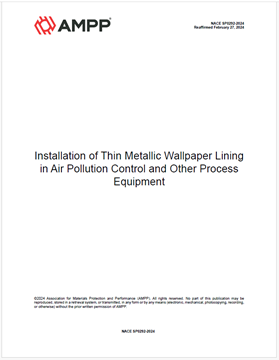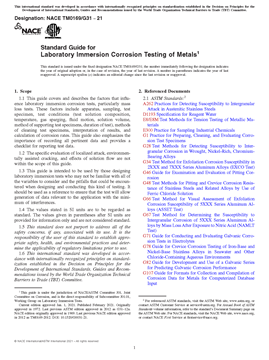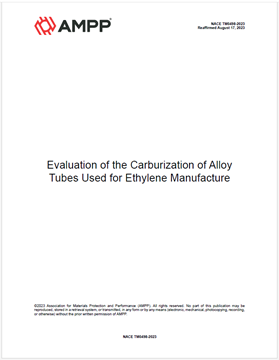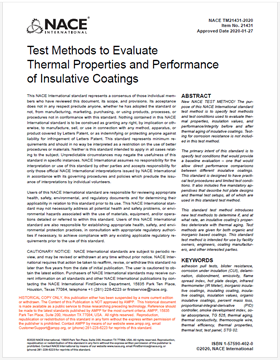Search
Process Industries
View as
Sort by
Display
per page
Evaluation of 316L and 2205 Steels Under Flow Effects in Caustic Environments
Product Number:
51317--9158-SG
ISBN:
9158 2017 CP
Publication Date:
2017
$20.00
Kinetic and Morphological Investigation of Calcium Sulfate Dihydrate (gypsum) Scale Formation on Heat Exchanger Surfaces in the Presence of Inhibitors
Product Number:
51317--9020-SG
ISBN:
9020 2017 CP
Publication Date:
2017
$20.00
Material-Biodiesel Compatibility – Survey of Industry Experience
Product Number:
51317--9434-SG
ISBN:
9434 2017 CP
Publication Date:
2017
$20.00
Monitoring Evaluating and Control of Corrosion and Scaling in Higher Pressure Industrial Boilers
Product Number:
51317--8988-SG
ISBN:
8988 2017 CP
Publication Date:
2017
$20.00
NACE SP0109-2019, Application of Tape Coatings for External Corrosion Protection of Buried Metal Pipelines
Product Number:
21143-SG
Publication Date:
2019
$179.00
NACE SP0199-2024, Installation of Stainless Chromium-Nickel Steel and Nickel-Alloy Roll-Bonded and Explosion-Bonded Clad Plate in Air Pollution Control Equipment
Product Number:
NACE SP0199-2024
$109.00
NACE SP0292-2018, Installation of Thin Metallic Wallpaper Lining in Air Pollution Control and Other Process Equipment
Product Number:
21054-SG
Publication Date:
2018
$179.00
NACE SP0292-2024, Installation of Thin Metallic Wallpaper Lining in Air Pollution Control and Other Process Equipment
Product Number:
NACE SP0292-2024
$109.00
NACE TM0169-2021/ASTM G31-21, Standard Guide for Laboratory Immersion Corrosion Testing of Metals
Product Number:
21200-SG
Publication Date:
2021
$109.00
NACE TM0498-2023, Evaluation of the Carburization of Alloy Tubes Used for Ethylene Manufacture
Product Number:
NACE TM0498-2023
$109.00
NACE TM21431-2020, Test Methods to Evaluate Thermal Properties and Performance of Insulative Coatings
Product Number:
21431-2020
Publication Date:
2020
$179.00


